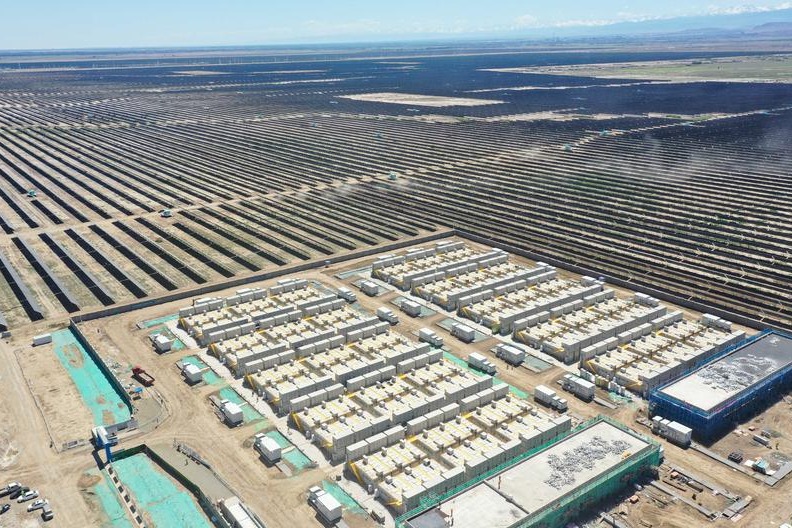Objective study needed to assess value of country parks

The government last month commissioned the Hong Kong Housing Society, a non-government organization aiming to serve the needs of the Hong Kong community in housing and related services, to study the ecological value of two areas which fall within, or lie close to, Tai Lam and Ma On Shan country parks and the feasibility of developing housing projects there. The move has attracted mixed response.
The key argument of the opposing side is that country parks have significant value to Hong Kong, which must not be sacrificed in favor of development. It seems that the term "value" has become a trump card in public issue debate nowadays. However, Hong Kong is facing severe land shortage and it is time to seriously reconsider the "value" of country parks, which make up 40 percent of our land area.

In fact, the value of country parks is ever changing over the years. Country parks were initially set up to protect water catchment areas. In the mid-20th century Hong Kong suffered serious water shortages and scenes of water rationing at that time have become a collective memory of Hong Kong people. This function of water storage protection explained why 80 percent of the city's country parks overlapped water-catchment areas. However, Hong Kong started to import fresh water from Guangdong province in 1960 and the threat of water shortages was gradually removed by increasing importation of Dongjiang water through the Dongjiang-Shenzhen Water Supply Scheme from March 1965 onwards. Today, Hong Kong's water supply system is reliable and comprehensive. The role of country parks in protecting water catchment areas has significantly declined.
Since then, the value of country parks has shifted to conservation. Indeed conservation-related zones - which include sites of special scientific interest, conservation areas, coastal protection areas and green belts - are specifically protected by the Town Planning Ordinance. The question is: How can we make better use of those areas which have less or no conservation value? We need to conduct more studies on this subject to facilitate sustainable development.
Nowadays, we also consider the public enjoyment value of country parks as living standards rise. So country parks now have more to do with life quality. However, we should not ignore the fact that Hong Kong is suffering from a huge disproportionality between recreational country parks and living space. Only 7 percent of our land is used for residential buildings while more than 40 percent is designated as country parks. According to the Housing Authority, there were about 276,000 outstanding applications for public rental housing at the end of March, with the average waiting time for general applicants reaching 4.6 years. When we are talking about improving life quality by maintaining country parks, we should also consider how to improve the life quality of those waiting for public housing. It is time for us to consider the "welfare value" of country parks.
Some may argue there are other alternatives, for example making better use of existing brownfield sites and idle industrial buildings. But we have to face the reality: Hong Kong is gripped by a severe land shortage, which is likely to be aggravated by an aging population - we need more land for elderly care on the one hand and more houses for young people to maintain productivity on the other. Confronted by such a severe situation, we need multiple solutions rather than a single one to tackle the land shortage. That means all options - including brownfields, old industrial buildings and country parks - should be considered.
The debate strategy of the opposing side was to distort the picture, claiming that even a pilot study would lead to total destruction of country parks. This is a typical "slippery slope" fallacy. The truth is a study will lead to no destruction but better preservation of country parks. The value of country parks can be better understood with the help of an objective study. Just as Housing Society Chief Executive Wong Kit-loong said: "We are not saying we are going to build flats in country parks now But the study will facilitate (constructive) public discussion."
Most of us love our country parks and appreciate their value. The purpose of the Housing Society's ecological studies, covering Tai Lam and Shui Chuen O, is to provide objective analyses and facilitate constructive discussion on how to better exploit the value of our land resources. Instead of resorting to sensational slogans, the critics should come up with substantive and convincing arguments and be pragmatic about this issue.
(HK Edition 06/12/2017 page8)
Today's Top News
- Xi meets Spanish king in Beijing
- Xi holds welcome ceremony for Spanish king
- Astronauts' return mission proceeds smoothly
- Vocational education helps youth break the cycle of poverty
- GBA goes from bold blueprint to living reality
- Giving a human touch to tech innovation






























